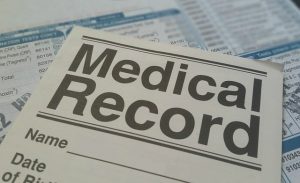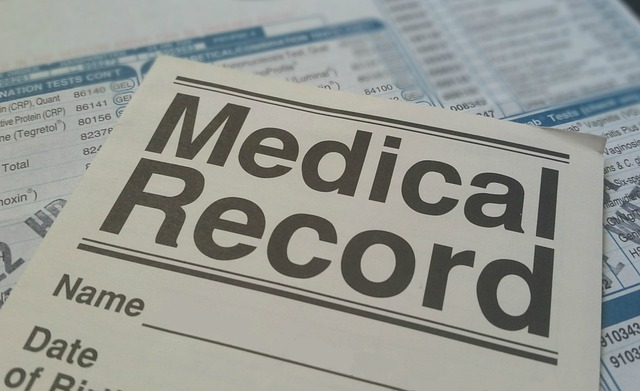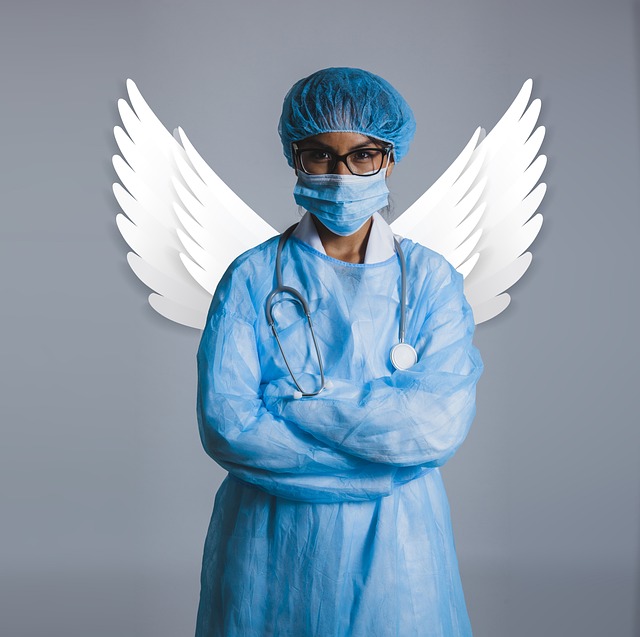Endoscopy is a common medical procedure that can be quite nerve-wracking for those who are about to go through it. It’s natural to feel anxious before such an event, but there are ways you can stay calm and better prepare yourself for the endoscopy. In this article, we’ll discuss some tips and tricks to help you keep your cool before your endoscopy appointment.
It’s important to remember that anxiety is a normal reaction to the unknown. By understanding your feelings and preparing ahead of time, you can make the process significantly less stressful. In the following paragraphs, we’ll explore some strategies that can help you remain calm before your endoscopy.
Acknowledge Your Anxiety
 It is natural to feel anxious before an endoscopy. The unfamiliar environment, unknown procedure and potential risks can all create a sense of unease. It is important to take the time to acknowledge your feelings and recognize that everyone experiences some degree of fear when facing a medical procedure like this.
It is natural to feel anxious before an endoscopy. The unfamiliar environment, unknown procedure and potential risks can all create a sense of unease. It is important to take the time to acknowledge your feelings and recognize that everyone experiences some degree of fear when facing a medical procedure like this.
The best way to stay calm before the endoscopy is by taking positive steps to manage your anxiety. Make sure you get enough sleep the night before, eat a healthy meal, practice calming exercises such as yoga or meditation, and allow yourself plenty of time for preparation. Doing these things will help you stay focused and relaxed on the day of your procedure.
Talk To Your Doctor
Acknowledging your anxiety before an endoscopy is an important step to take in order to stay calm. It can be difficult to confront the fear that may arise in anticipation of the procedure, but it’s important to recognize that it’s natural and normal to experience these feelings. Once you recognize your anxiety and accept it, you can move forward with strategies for calming down.
One of the most beneficial things you can do is talk to your doctor about any concerns or questions you may have leading up to the endoscopy. They will be able to provide answers, reassurance, and guidance. When speaking with your doctor, don’t hesitate to ask what steps they are taking for safety during the procedure and if there are any measures you should take beforehand or after the procedure. You can also discuss any pain control methods that may be available for you during the procedure if needed. Knowing that you have taken steps to prepare yourself mentally and physically can help reduce some of the stress associated with endoscopies.
Learn About The Procedure
As you wait for your endoscopy procedure, it can be hard to stay calm and relaxed. You may feel a mix of emotions, from anxiety to excitement. Taking the time to learn about the procedure can help you better understand it, soothe any nerves, and prepare yourself for the experience.
Your doctor should provide a detailed explanation of what will happen during the endoscopy. Make sure you get all your questions answered before proceeding with the procedure. If you’re feeling particularly anxious, ask if there’s anything else they can do to help ease your mind. Deep breathing techniques or guided meditation are some popular methods to help reduce stress before undergoing a medical procedure. Additionally, ask your doctor if there are any lifestyle modifications that could be beneficial in preparation for the endoscopy such as changes in diet or exercise habits.
Making these preparations in advance will help ensure that your endoscopy experience is comfortable and successful. You can take comfort knowing that this is a common procedure used by doctors to diagnose various gastrointestinal issues and diseases with minimal discomfort for patients.
Practice Relaxation Techniques
Now that you know what to expect during an endoscopy, it’s time to learn how to stay calm before the procedure. Relaxation techniques are a great way to ease anxiety and ensure that you feel more comfortable. Deep breathing is one of the most effective methods for calming your mind and body. Taking slow, deep breaths helps regulate your heart rate and relax all of your muscles. You can also practice progressive muscle relaxation, which involves tensing and releasing each set of muscles in your body, starting at the toes and working up to the head. Meditation is another excellent way to reduce stress levels prior to an endoscopy. Taking a few minutes to focus on calming thoughts or repeating mantras can help create a sense of inner peace and wellbeing. With these techniques, you can enter the procedure with a clear and relaxed state of mind.
Prepare Ahead Of Time
Going in for an endoscopy can be an intimidating experience, but preparing ahead of time can help reduce stress and make the process smoother. One key step is to clearly understand what will happen during the procedure, as well as any potential risks or side effects. Talk to your doctor about any questions or concerns you have before going in for the endoscopy. Knowing exactly what to expect can help alleviate some of your worries.
In addition, it’s important to take care of yourself leading up to the procedure. Get plenty of rest and avoid consuming anything that might interfere with the process such as alcohol or nicotine. It also helps to practice calming techniques like deep breathing or meditation in order to relax before you go in. Taking these steps will help ensure that you feel as relaxed and comfortable as possible on the day of your endoscopy.
How Long Does An Endoscopy Procedure Take?
Endoscopy procedures typically take anywhere from 15 minutes to an hour, depending on the complexity of the procedure. The doctor will first ask you to remove any jewelry, glasses or other items that may interfere with the procedure. Then they will insert a small camera into your mouth or anus and move it around to get a good look inside your body. After this is done, you’ll be asked to wait while the doctor examines the images taken during the endoscopy. Once they have finished reviewing them, they will discuss their findings with you and determine what further steps need to be taken.
What Kind Of Pain Relief Is Available During An Endoscopy?
Pain relief during an endoscopy is typically minimal, but depending on the type of procedure being performed and your level of discomfort, there are various options available. An intravenous sedative may be prescribed to help you relax, while local anesthesia or numbing agents may be used to reduce any pain associated with the procedure. In some cases, a combination of medications may be administered for maximum comfort.
Is Sedation Necessary For An Endoscopy?
Sedation is not necessarily required for an endoscopy, but it can be offered to make the procedure more comfortable. The type of sedation used is usually a light form such as IV sedation or nitrous oxide. Your doctor will discuss the risks and benefits with you and help decide whether it’s right for you.
What Are The Risks Associated With An Endoscopy?
Endoscopies are a commonly performed medical procedure, but they do carry certain risks. These include the risk of infection, damage to the digestive tract, and reactions to the sedative used during the procedure. Additionally, there is a small risk of a tear in the digestive tract that may require surgery to repair. Most of these risks are rare and can be minimized with proper preparation and care before and after the endoscopy.
How Much Does An Endoscopy Cost?
The cost of an endoscopy varies depending on the facility and the type of procedure being performed. Generally, an endoscopy can cost between $500 to $4,000 or more. If you have insurance, it will likely cover some or all of the cost of your endoscopy. It’s important to check with your provider ahead of time so you know what your out-of-pocket expenses may be.
Endoscopy procedures can be intimidating, but there are steps you can take to stay calm. It’s important to know how long the procedure takes and what kind of pain relief is available. Talk to your doctor about whether sedation is necessary if you’re feeling anxious. Understanding the associated risks and knowing how much it will cost can also give you peace of mind. It’s also helpful to practice deep breathing exercises before the procedure and remind yourself that everything will be okay. With these tips, you can feel more prepared for your endoscopy and have a successful outcome.








